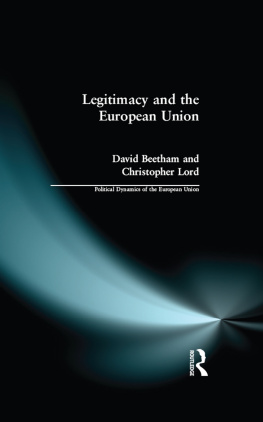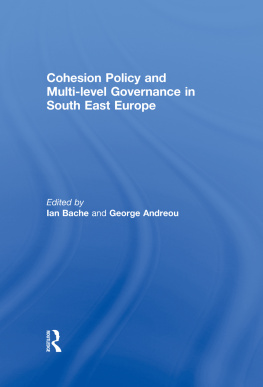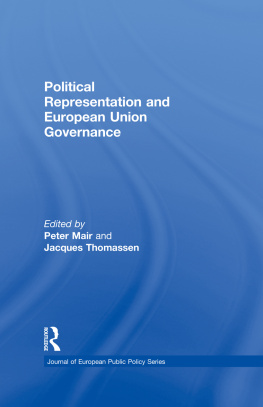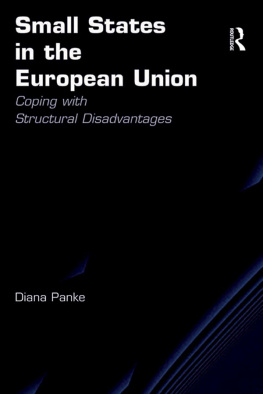THE PRINCETON ECONOMIC HISTORY OF THE WESTERN WORLD
Joel Mokyr, Series Editor
Growth in a Traditional Society: The French Countryside, 14501815, by Philip T. Hoffman
The Vanishing Irish: Households, Migration, and the Rural Economy in Ireland, 18501914, by Timothy W. Guinnane
Black 47 and Beyond: The Great Irish Famine in History, Economy, and Memory, by Cormac Grda
The Great Divergence: China, Europe, and the Making of the Modern World Economy, by Kenneth Pomeranz
The Big Problem of Small Change, by Thomas J. Sargent and Franois R. Velde
Farm to Factory: A Reinterpretation of the Soviet Industrial Revolution, by Robert C. Allen
Quarter Notes and Bank Notes: The Economics of Music Composition in the Eighteenth and Nineteenth Centuries, by F. M. Scherer
The Strictures of Inheritance: The Dutch Economy in the Nineteenth Century, by Jan Luiten van Zanden and Arthur van Riel
Understanding the Process of Economic Change, by Douglass C. North
Feeding the World: An Economic History of Agriculture, 18002000, by Giovanni Federico
Cultures Merging: A Historical and Economic Critique of Culture, by Eric L. Jones
The European Economy since 1945: Coordinated Capitalism and Beyond, by Barry Eichengreen
War, Wine, and Taxes: The Political Economy of Anglo-French Trade, 16891900, by John V. C. Nye
A Farewell to Alms: A Brief Economic History of the World, by Gregory Clark
Power and Plenty: Trade, War, and the World Economy in the Second Millennium, by Ronald Findlay and Kevin ORourke
Power over Peoples: Technology, Environments, and Western Imperialism, 1400 to the Present, by Daniel R. Headrick
Unsettled Account: The Evolution of Banking in the Industrialized World since 1800, by Richard S. Grossman
States of Credit: Size, Power, and the Development of European Polities, by David Stasavage
Creating Wine: The Emergence of a World Industry, 18401914, by James Simpson
States of Credit
SIZE, POWER, AND THE DEVELOPMENT OF EUROPEAN POLITIES
David Stasavage
PRINCETON UNIVERSITY PRESS
PRINCETON AND OXFORD
Copyright 2011 by Princeton University Press
Requests for permission to reproduce material from this work
should be sent to Permissions, Princeton University Press
Published by Princeton University Press, 41 William Street,
Princeton, New Jersey 08540
In the United Kingdom: Princeton University Press,
6 Oxford Street, Woodstock, Oxfordshire OX20 1TW
press.princeton.edu
All Rights Reserved
Library of Congress Cataloging-in-Publication Data
Stasavage, David.
States of credit: size, power, and the development of European polities /
David Stasavage.
p. cm.(The Princeton economic history of the Western world)
ISBN 978-0-691-14057-5 (hardcover: alk. paper)
1. Debts, PublicEuropeHistory. 2. CreditEuropeHistory.
3. EuropePolitics and government. 4. EuropeHistory.
5. Middle Ages. I. Title.
HJ8615.S857 2011
336.3'4094dc22 2011006917
British Library Cataloging-in-Publication Data is available
This book has been composed in AdobeGaramondPro
Printed on acid-free paper.
Typeset by S R Nova Pvt Ltd, Bangalore, India
Printed in the United States of America
10 9 8 7 6 5 4 3 2 1
TO MY CHILDREN
Rivka and Ezra
Contents
Illustrations
TABLES
FIGURES
Acknowledgments
A number of people have been kind enough to give comments and advice related to this book during the process of research and writing. In particular, I would like to thank Daron Acemoglu, Neal Beck, Carles Boix, Deborah Boucoyannis, Mark Dincecco, Mauricio Drelichman, Jim Fearon, Jeff Frieden, Steve Haber, Pierre-Cyrille Hautcoeur, Susan Hyde, Margaret Levi, Bernard Manin, Abdul Noury, Jim Robinson, Ron Rogowski, Ken Scheve, Michael Sonenscher, Konstantin Sonin, Mike Tomz, as well as several anonymous readers for Princeton University Press.
I had the opportunity to present the manuscript to seminar audiences at Princeton University, Yale University, the Paris School of Economics, Harvard Business School, and Stanford University, all of whom gave invaluable reactions and comments. I also had the opportunity to present portions of work from the manuscript to audiences at Harvard University, New York University, Duke University, the University of British Columbia, the University of Pittsburgh, and Washington University in St. Louis, who were similarly generous with comments. In addition, my colleagues in the Department of Politics at NYU were a constant source of insight and encouragement. Also at NYU I would like to thank Chris Bowman, Sonke Ehret, James Hollyer, SunJeong Lee, and Tolga Sinmazdemir for excellent research assistance.
At Princeton University Press I would like to thank Seth Ditchik, Chuck Myers, and Janie Chan for all of their advice at each step of the editorial and production process. Also at Princeton University Press, Linda Truilo as copy editor offered extensive suggestions greatly helping to improve the final manuscript. I am particularly indebted to Joel Mokyr, the series editor, who at each step served as a patient guide as I sought to fashion a book that would address broad intellectual debates.
Finally, my greatest thanks go to my wife, Emmanuelle Ertel, who, in addition to pursuing her own projects, was always willing to listen and offer encouragement during the long period it took to bring this project to fruition.
States of Credit
CHAPTER ONE
Introduction
Among the many distinctive features of European state formation two have received particular attentionthe invention of the concept of political representation and the development of a system of public credit. It is a matter of some debate whether Europe was unique in having a system of political representationcertainly rulers in other regions met with councils or assembliesbut it is probably not an exaggeration to say that this phenomenon initially advanced to its greatest extent in Europe. Likewise, while rulers in other regions developed mechanisms for deferring payment for goods or for receiving advances on tax collections, there seems little doubt that the most extensive early development of a system of public credit occurred in Europe. This parallel development of representation and credit suggests that a causal link might have existed between the two. Within Europe, states such as Venice or the Dutch Republic that are seen as models in the development of representative institutions can also be viewed as pioneers in the development of public credit, whereas polities such as France are considered as having trailed on both of these dimensions. Did the presence of an intensive form of representation facilitate access to credit for the former, allowing them to survive and their economies to prosper? If so, why did this intensive form of representation emerge in some places but not others? Finally, how did this joint development of credit and representation affect broader trends involving war, state formation, and economic growth? Despite the importance of these questions, no existing scholarly study examines these issues in a broad comparative context. This book is designed to fill that gap.
I will argue that the presence of an intensive form of representation characterized by an assembly that could monitor and modify expenditures was critical in facilitating access to credit by European states. But the existence of an assembly that would function in this manner was itself dependent on two underlying conditions. First, in an era of high communications and travel costs this intensive form of political representation could be maintained only in polities of limited geographic scale. assemblies of this sort were more likely to take actions consistent with the interests of state creditors in polities where the same merchants who invested in government debt were also predominant among the political elite. These two underlying conditions were most frequently, but not exclusively and not always, met in city-states where assemblies could be convened by devices as simple as the ringing of a town bell and where the same merchants who purchased public debt also served as magistrates on town councils. In the territorial states of Europe, in strong contrast, geographic scale often proved to be a fundamental obstacle, making it costly to sustain a representative assembly that would meet frequently enough to monitor public expenditures. Assemblies in European territorial states could be powerful, but their influence was of a more passive form involving the ability to veto requests by monarchs for taxation. The social composition of territorial state assemblies was also fundamentally different from that of the city-states. Merchantsthose who lent most frequently to governmentplayed a more limited role within them, a fact that had significant consequences for the behavior of these institutions.











